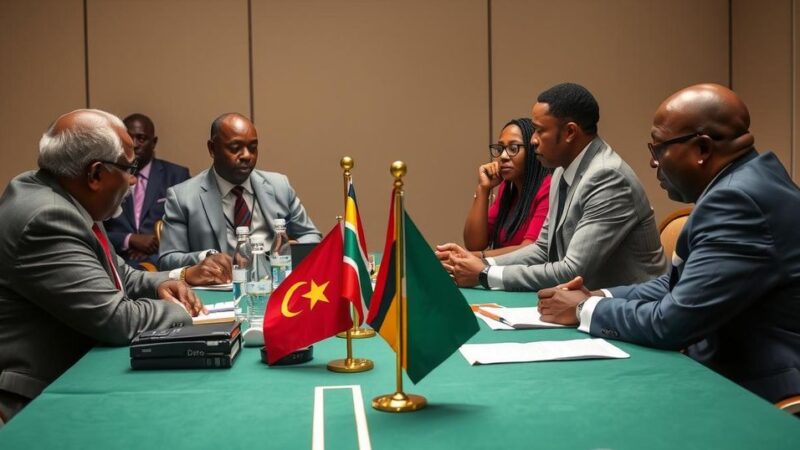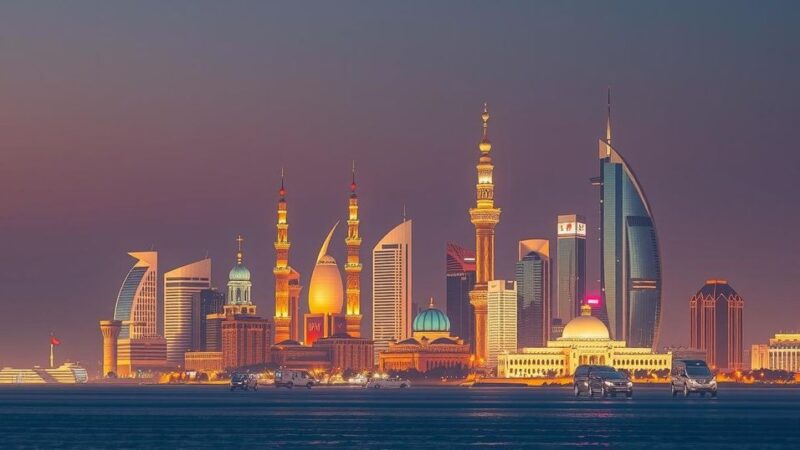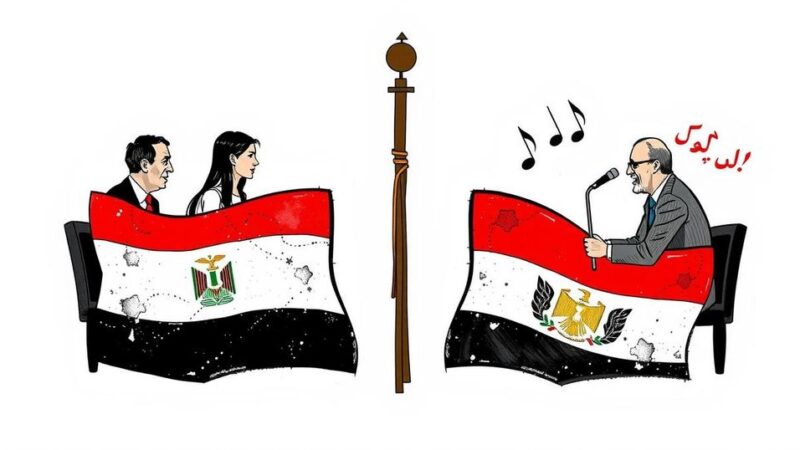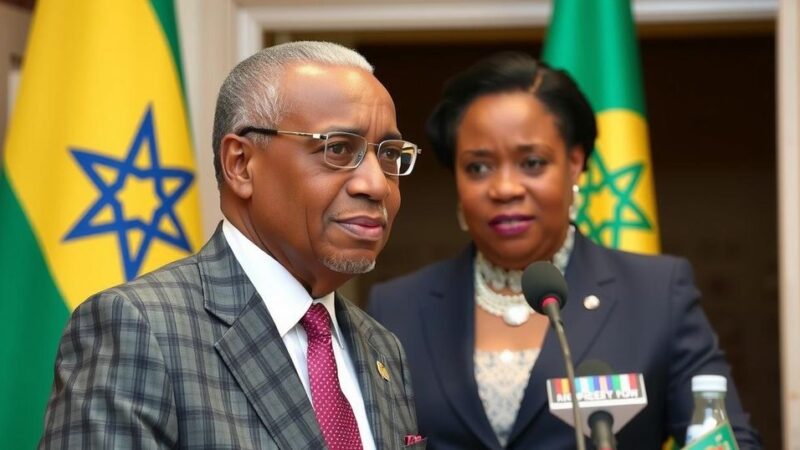Somalia and Ethiopia have restored full diplomatic relations after a year-long rift that destabilized the Horn of Africa, largely due to an agreement Ethiopia made with Somaliland. During Somali President Hassan Sheikh Mohamud’s visit to Ethiopia, both leaders expressed commitment to improved cooperation in trade and security. However, critical questions remain about the specifics of maritime access for Ethiopia and the future of its agreement with Somaliland.
On January 11, Somalia and Ethiopia declared the resumption of full diplomatic relations, effectively concluding a year-long dispute that had exacerbated instability within the Horn of Africa. This agreement was reached during a visit by Somali President Hassan Sheikh Mohamud to Ethiopia, where he and Ethiopian Prime Minister Abiy Ahmed reaffirmed their commitment to strengthening bilateral ties in their respective capitals, as stated in a joint announcement.
The diplomatic rift originated when Ethiopia entered into a contentious understanding with Somaliland, the self-declared independent region of Somalia. The agreement, which allegedly included provisions for recognizing Somaliland’s independence in exchange for military and port access, led to widespread condemnation in Somalia and prompted the expulsion of the Ethiopian ambassador in April. This month, a peace accord facilitated by Turkey cleared the way for Saturday’s diplomatic reparation.
While Mohamud and Abiy vowed to enhance cooperation on essential issues such as trade and security, particularly concerning combating militant extremism, several critical questions remain unanswered. Notably, the specifics of Ethiopia’s potential maritime access remain vague despite previous suggestions from Turkish President Recep Tayyip Erdogan. Additionally, the status of Ethiopia’s arrangement with Somaliland continues to be a matter of uncertainty.
Further complicating the situation, regional tensions persist regarding the security of the Red Sea. Just prior to Mohamud’s visit, Somalia’s Foreign Minister Ahmed Moalim Fiqi met with Egyptian and Eritrean counterparts in Cairo to discuss regional security issues. Egyptian Foreign Minister Badr Abdelatty emphasized that “the Red Sea and its security is subject only to the will of the countries on its coast,” reinforcing the need to address Ethiopian military involvement.
Moreover, a trilateral alliance involving Egypt, Eritrea, and Somalia was solidified in October, reflecting their collective stance against Ethiopia’s regional aspirations. In a strategic response to rising insurgency threats in Somalia, Egyptian forces have also joined the African Union Support and Stabilisation Mission in Somalia (AUSSOM), tasked with countering Islamist militants.
The rift between Somalia and Ethiopia can be traced back to Ethiopia’s controversial engagement with Somaliland, a region that declared independence from Somalia in the early 1990s but remains internationally unrecognized. The potential recognition and military collaboration proposed by Ethiopia were viewed as direct challenges to Somalia’s sovereignty. The ensuing diplomatic breakdown escalated tensions in the Horn of Africa and prompted a broader regional realignment, especially in light of concurrent tensions surrounding Red Sea security. The involvement of external parties, notably Turkey, in brokering peace highlights the intricate nature of regional geopolitics.
The restoration of diplomatic relations between Somalia and Ethiopia marks a significant step towards stability in the Horn of Africa following a period of heightened tensions. Nevertheless, unresolved issues regarding the status of Somaliland, Ethiopia’s access to the sea, and ongoing regional dynamics illustrate that challenges remain. Ongoing collaboration on security and trade will be essential for fostering enduring peace and cooperation within the region.
Original Source: www.firstpost.com






